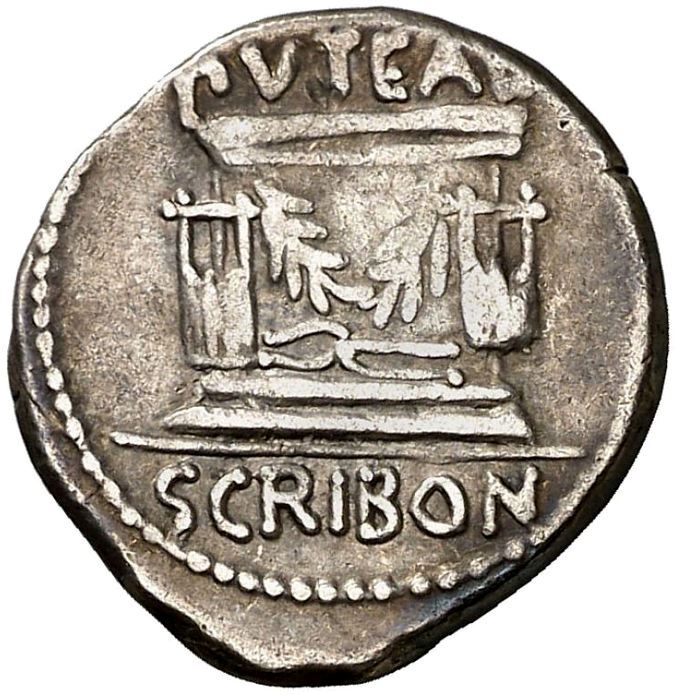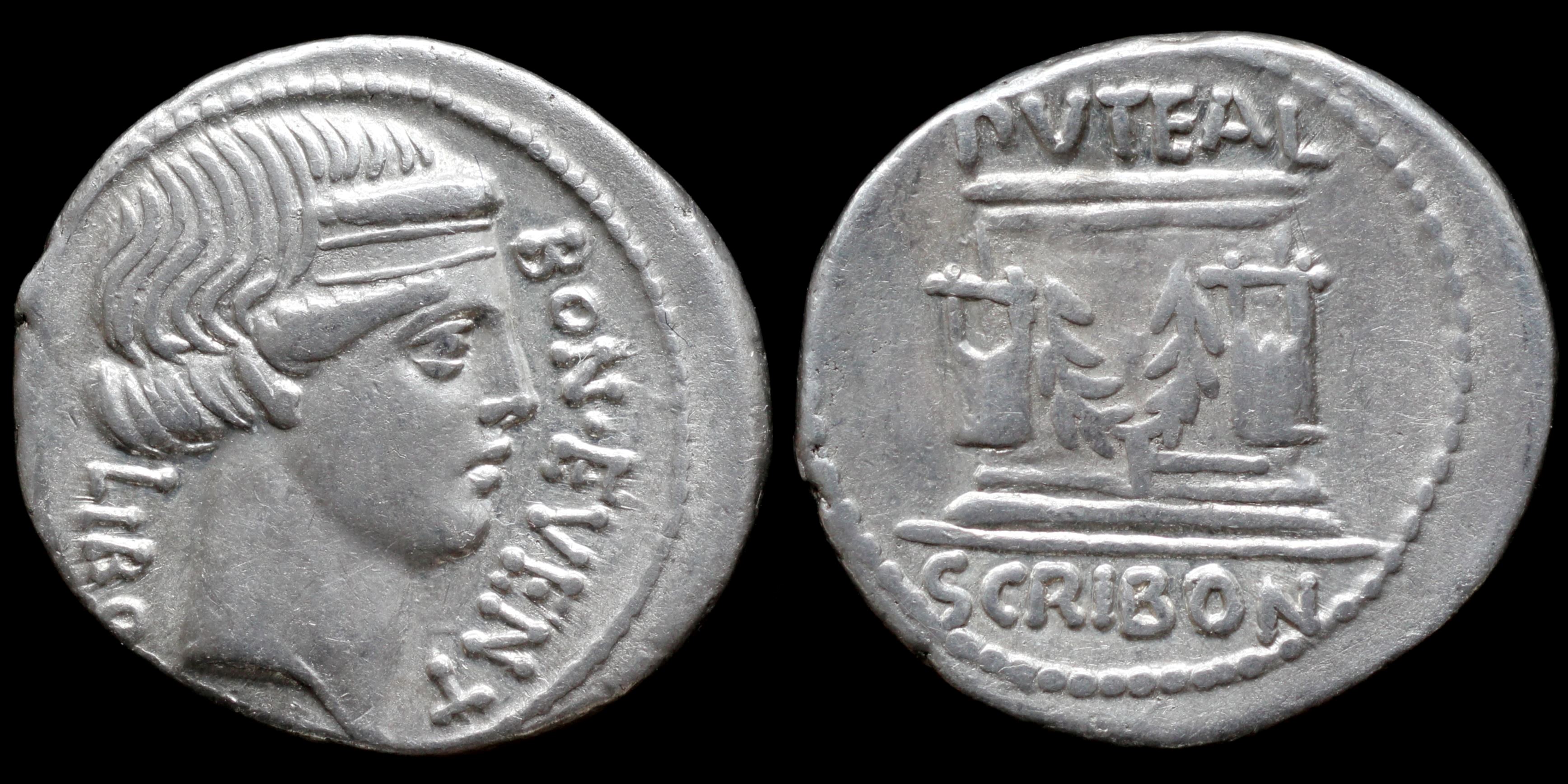An L. Scribonius Libo was moneyer in 62 BC - perhaps the consul for the year 34 BC, or more likely his father (according to Crawford).
The elder Scribonius Libo held the office of praetor urbanus in 80 BC. He married Cornelia Sulla, the daughter of Pompeia Magna (daughter of triumvir Pompey) and senator Faustus Cornelius Sulla (the son of Sulla).
Cornelia bore Lucius two children: a daughter called Scribonia (the second wife of future Roman Emperor Augustus) and the son who was Consul of 34 BC. His coins commemorates his repair of the Puteal Scribonianum.
The elder Scribonius Libo held the office of praetor urbanus in 80 BC. He married Cornelia Sulla, the daughter of Pompeia Magna (daughter of triumvir Pompey) and senator Faustus Cornelius Sulla (the son of Sulla).
Cornelia bore Lucius two children: a daughter called Scribonia (the second wife of future Roman Emperor Augustus) and the son who was Consul of 34 BC. His coins commemorates his repair of the Puteal Scribonianum.


Obverse: diademed head of Bonus Eventus right; BON·EVENT / LIBO
Reverse: Puteal Scribonianum ornamented with garland and two lyres, hammer at base; PVTEAL / SCRIBON
Diameter:
19 mm
Die Orientation: -
Weight: 4.1 g
Die Orientation: -
Weight: 4.1 g
The reverse of this coin depicts the Puteal Scriboniarum which L. Scribonius Libo renovated. According to ancient sources, the Puteal Scriboniarum was a bidental, that is, a spot which had been struck by lightning. It took its name from its resemblance to the low enclosure around a well (puteus) that was between the Temple of Castor and Pollux and the Temple of Vesta, near the Porticus Julia and the Arcus Fabiorum (arch of the Fabii). The praetor’s tribunal was convened nearby, having been removed from the comitium in the 2nd century BC. It thus became a place where litigants, money-lenders and business people congregated. Foundations of well were discovered during excavations in 1950. Bonus Eventus, originally the god of success in trade and agriculture who should ensure good harvest, bacame later the god of luck and happy end. He could commemorate recent event - the end of Catilinarian conspiracy.
Crawford 416/1a, RSC I Scribonia 8a, Sydenham 928, SRCV 367
